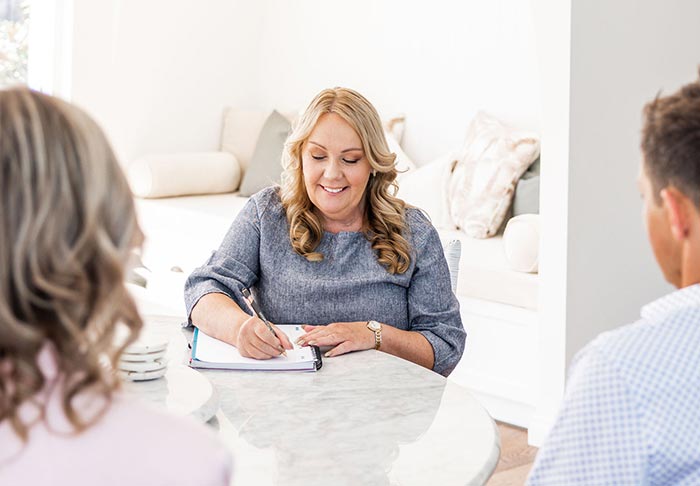Divorce Mediation
Divorce Mediation: A Better Way to Handle Separation
What is a Mediator? A Complete Guide to Divorce Mediation vs Divorce Lawyers
When a relationship or marriage breaks down, separating can be one of the most emotionally challenging times in a person’s life. While the path forward often seems uncertain, there are different ways to resolve the issues that come with separation. Divorce mediation and divorce lawyers offer two distinct approaches, each with its advantages depending on your situation.
In this guide, we’ll answer all the essential questions you might have about mediation and lawyers, including how divorce mediation works in Australia, the cost of mediation, and how to start the process. We’ll also explain the key differences between a mediator and a divorce lawyer, so you can decide which path is right for you.
What is a Divorce Mediator?
A divorce mediator is a neutral third party who helps couples work through their issues by facilitating discussions and negotiations. Unlike a divorce lawyer, who represents one party, the mediator’s role is to help both parties find common ground and reach a mutually agreeable resolution.
Mediators do not offer legal advice but guide couples in communicating effectively and understanding the implications of different decisions—whether related to child custody, financial support, or property division. Family law mediation is typically less adversarial, allowing both parties to maintain more control over the outcome and move forward with a solution tailored to their specific needs.

How Does Divorce Mediation Work in Australia?
In Australia, divorce mediation follows a structured yet flexible process. Mediation aims to help couples resolve disputes without the need for court intervention. Here’s how it generally works:
- Initial Consultation: You and your partner meet separately with a mediator to discuss the mediation process, identify issues that need resolution (such as parenting, finances, or property), and set goals.
- Mediation Sessions: Over a series of sessions or just one, the mediator will guide you through negotiations. Both parties are encouraged to voice their concerns and work towards a solution. Unlike court proceedings, these discussions are confidential and offer more room for creative problem-solving.
- Final Agreement: Once a mutual agreement is reached on all issues, the mediator will help draft a mediation agreement or parenting plan, which can be reviewed by your lawyer before being submitted to court for legal approval.
Mediation is especially effective when both parties are willing to compromise and work collaboratively. It’s often required as a first step before going to court for family matters, especially in child custody disputes under the Family Law Act 1975.
How Much Does Mediation Cost in Australia?
The cost of mediation in Australia can vary depending on several factors, including the complexity of the issues, the number of sessions required, and the mediator’s qualifications. On average, private mediation costs between $200 to $500 per hour. Some community and family services offer subsidised or free mediation, but these often have longer waiting periods.
For a typical separation involving children and property, you may expect to spend around $2,000 to $5,000 on mediation, which is still significantly less than court litigation, where costs can escalate to tens of thousands of dollars. This is the cost for the mediator and does not include the cost of your lawyer.

What is the Difference Between a Lawyer and a Separation Mediator?
Understanding the difference between a divorce lawyer and a mediator is very important when deciding the best approach for your separation.
Here’s a comparison:
- Divorce Mediator:
- Neutral Party: A mediator does not take sides but helps both parties reach a compromise.
- No Legal Advice: Mediators facilitate discussions but do not provide legal counsel.
- Focus on Cooperation: Mediation aims for a win-win solution where both parties can be satisfied, reducing conflict and promoting cooperation.
- Less Adversarial: Mediators encourage communication and amicable resolution, avoiding the adversarial nature of court battles.
- Divorce Lawyer:
- Client Advocate: A lawyer represents one party and fights for their best interests, often seeking the most favourable outcome.
- Legal Expertise: Lawyers provide legal advice and can represent you in court.
- Litigation or Mediation: A lawyer may guide you through both mediation or litigation, depending on the situation.
- Adversarial Process: Lawyers are skilled in advocating for their client, especially if a separation becomes contentious.
Often you will need both a mediator and a divorce lawyer during your separation. The divorce lawyer will give you legal advice and can also attend your mediation sessions. The mediator will chair your family law mediation sessions. You can attend mediation without a lawyer as well, however it is necessary that you get legal advice from a family lawyer regardless if you have your lawyer present in mediation or not.
How Do I Start Mediation?
Starting the mediation process is straightforward:
Initial Research: Look for accredited family law mediators who specialise in separation and divorce. They are also known as Family Dispute Resolution Practitioners. You can find professionals through legal associations, community services, or private firms. Make sure to choose someone who understands Australian family law and who can issue a 60I certificate if mediation fails so you can lodge parenting orders with the family court if necessary.
- Consultation: Book an initial consultation to discuss your situation and see if mediation is a good fit for you and your ex- partner.
- Preparation: Before starting mediation, gather all relevant financial documents and consider your goals for the outcome. Being well-prepared ensures the process is more efficient and productive.
- Attend Mediation Sessions: Once you and your partner agree to mediation, you will begin attending sessions facilitated by the mediator. You will start with a private session each and after that you will have joint sessions with your ex partner. Each session will focus on resolving one or more key issues, with the ultimate goal of reaching a fair and sustainable agreement.

Why Mediation and Legal Advice Work Best Together
At Life Mediation, we believe that mediation and legal support complement each other, helping clients reach agreements that are both collaborative and well-informed. While mediation empowers clients to work together to find mutually agreeable solutions, obtaining independent legal advice ensures each person understands their rights, responsibilities, and the legal implications of their decisions. Many clients choose to involve their lawyers directly in the mediation sessions, benefiting from real-time support and advice on complex matters like superannuation and property. Others may consult their lawyers separately and have them formalise the agreements afterward to make them legally binding.
Lawyer-Assisted vs. Non-Lawyer-Assisted Mediation
Life Mediation offers flexibility, with both lawyer-assisted and non-lawyer-assisted mediation options. In non-lawyer-assisted sessions, clients work collaboratively in a more informal setting, while lawyer-assisted mediation allows clients to have legal advisers present during discussions. This approach can be particularly helpful for clients with unique or complex circumstances, or for those who feel more comfortable having their lawyer by their side. Lawyer-assisted mediation helps clients feel fully supported throughout the process, reducing stress and ensuring clarity on any legal issues.
When a Divorce Lawyer May Be Necessary
In some instances, legal representation is essential. If one party is unwilling to cooperate or provide necessary financial information, or if the separation is highly contentious, legal intervention may be the only way forward after you have tried all other avenues. Lawyers can help protect complex legal rights and, after mediation, can draft agreements, lodge paperwork with the court, and ensure the terms are legally binding. This comprehensive approach provides clients with both the empowerment of mediation and the security of legal guidance.

Divorce Mediator vs Lawyer: Which is Right for You?
Both mediators and lawyers aim to help you resolve your separation. The primary difference lies in their approach. Mediators focus on facilitating communication and reaching a win-win outcome for all parties, whereas lawyers advocate for the best possible outcome for their client.
If your separation is amicable and both parties are willing to negotiate, mediation can save time, money, and emotional strain. However, if one party is unwilling to compromise and you cannot reach an agreement, a divorce lawyer is often what you need. At Life Mediation we believe that court should be your absolute last resort as it takes years to litigate which is time you will not get back with your children, it is very costly and your co-parenting relationship will suffer which can impact your children. But it is necessary at times. If you are however able to reach an agreement in mediation, maybe even one that you are not 100% happy with you might be better off in the long run. But ultimately this decision is up to you.

Not sure where to go next?
Whether you’re leaning towards divorce mediation or need the support of a family lawyer, it’s important to make the choice that best suits your needs and situation. At Life Mediation we believe that you need both a lawyer and mediator and we specialise in providing compassionate and professional mediation services that can help you move forward with confidence. Contact us today to book your free consultation and find out how we can assist you through this challenging time.
What Our Clients Say About Mediation
Discover how families who have worked with Lisanne have found a way to move forward, been provided the support they needed, and were able to find a solution that works for everyone involved.
Please note that the names of our clients have been changed to protect their privacy.
Family Mediation Terms and Conditions
Life Mediation payment terms:
Payment must be in advance for every session. The session will only be confirmed after payment has been received.
Life Mediation cancellation policy:
Cancellations must be made more than 24 hours before the appointment or the full session fee will be forfeited.
When a practitioner that works for Life Mediation has to reschedule or cancel the appointment the client will be fully refunded for the cancelled appointment and Life Mediation will make an effort to schedule a new appointment as soon as possible to minimize the inconvenience on the client or will provide the client with details of another practitioner if the client prefers this.
The pricing schedule is current as of 3rd November 2021. Pricing is subject to change and we will endeavour to update our website and cost agreement if this occurs.
Life Mediation and the Family Dispute Resolution Practitioners’ that work for Life Mediation are not in a position to provide any reports or information for any legal proceedings or court of law, as designated by Section 10D of the shared Parental Responsibility Act 2006.
Any information obtained by the staff of Life Mediation in the course of contact with a client is confidential within professional, legal and ethical limits. However whilst the client’s right to confidentiality is upheld and respected there may also be circumstances when a Life Mediation staff member is required to breach confidentiality, such as:
- Where there is some evidence of a clear or implied threat to life or safety, or there is a serious intent to harm self or others.
- Where there is known or suspected child abuse.
There will be times that the Relationships or Marital Mediation Practitioner will share client information in a confidential setting for the purpose of supervision to make the appropriate decisions regarding that particular relationship and/or family.
Any session entered is for the purpose of support, in relation to the client’s current situation. Should there be any disclosures of abuse, threat of abuse, direct evidence of violence or threats of harm to self or others, the Relationships or Marital Mediation Practitioner may act, out of duty of care, to report this to the appropriate authorities.
Book a complimentary 15-minute Consultation Session
to discuss how we can best assist you with your family mediation
Our Services

Family Mediation

Training & Workshops
Conflict in the workplace is a common occurrence. In fact, statistics tell us that managers spend approximately 20% of their time dealing with conflict. On a 40 hour work week, that is 8 hours – a full day per week!

